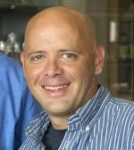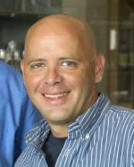We’re taking time over the following weeks to get to know the members of the GSA’s Early Career Scientist Committees. Join us every week to learn more about our early career scientist advocates.

Heath Blackmon
Trainee Advisory Representative, Board of Directors
University of Minnesota
Research Interest:
The development of separate sexes is a common trait in animals, and one of the most common methods of sex determination is chromosomal sex determination—like the XX/XY system that humans and many other organisms possess. In this system, there are two alternative versions of the sex chromosome (X and Y). If an individual has two copies of the X chromosome, they develop as female while individuals with an X and a Y chromosome develop as males. Despite this crucial role, the long-term fate of sex chromosomes remains poorly understood. Much of my research focuses on this part of sex chromosome evolution. Why are old Y chromosomes lost in some species but not others? What forces interact to determine the fate of diverged sex chromosomes? How do the forces created by sex chromosome evolution interact with other genome structural features?
You have an exciting career transition in the near future. Can you tell us a little about that?
I will be opening a lab as a new faculty member in the biology department at Texas A&M University in the fall of 2017. My lab will use both beetles and rodents in our studies of sex chromosomes, structural genome evolution, and quantitative genetics. I look forward to having my own lab and a group of young scientists that I can help to guide and train. I am actively recruiting lab members: http://coleoguy.github.io.
However, a lab is more than the sum of the science it produces. Ultimately, it is a home where our next generation of scholars, teachers, and researchers spend years of their lives. I am committed to making my lab an inclusive, healthy, and inspiring home for the students and postdocs that join me. I believe that this my responsibility as a faculty member, and I also believe that, in the long term, this will lead to my lab doing the best science it can.
In addition to your research, how else do you want to advance the scientific enterprise?
I focus my outreach work in two broad areas. The first is with elementary school children: I have developed a program for local schools where I provide a hands-on science experience. I begin by dividing students into small groups and giving each a skull from an unidentified animal. Over the course of an hour, the groups work to come up with hypotheses about the identity and diet of their animal based on observations about the skull. In the end, each group makes a short presentation of their results, and we talk about how we can all make inferences based on evidence.
The second area of my outreach is teaching software and coding skills to undergraduates and graduate students. I’m excited that this fall, as part of an NSF-funded project, I will be expanding this work into a “vets who code” group. As an Air Force veteran myself, I am excited to teach these valuable skills to fellow veterans. These students represent a growing segment of undergrads, and I believe they have already demonstrated many skills that would make them valuable members of our labs and research communities.
As a leader within the Genetics Society of America, what do you hope to accomplish?
The GSA is a special organization to me. I published my first research paper in GENETICS, and the entire experience with the handling editors and thoughtful reviewers taught me a great deal about what publishing could be, if done right. I applied to become an Advisory Representative to the Board of Directors to prepare myself for a role as a leader in my field and to learn how a scientific society that I have a lot of respect for is run. During my appointment, I have had the pleasure to work side by side with a diverse group of successful scientists who find time to guide the GSA despite running some of the most successful labs in the United States and Canada.
During my time with the Board of Directors, and in my day to day interactions with my peers, I have worked to bring evolutionary geneticists closer to the GSA. GENETICS has been home to many of the classic papers in the first century of evolutionary genetics, and I think it deserves more recognition as a home for this type of research.
Previous Leadership Experience:
- Founder and moderator – Foundations of Evolutionary Biology reading group
- Organized and developed – R for evolution and ecology short course
- Software carpentry instructor and assistant organizer































